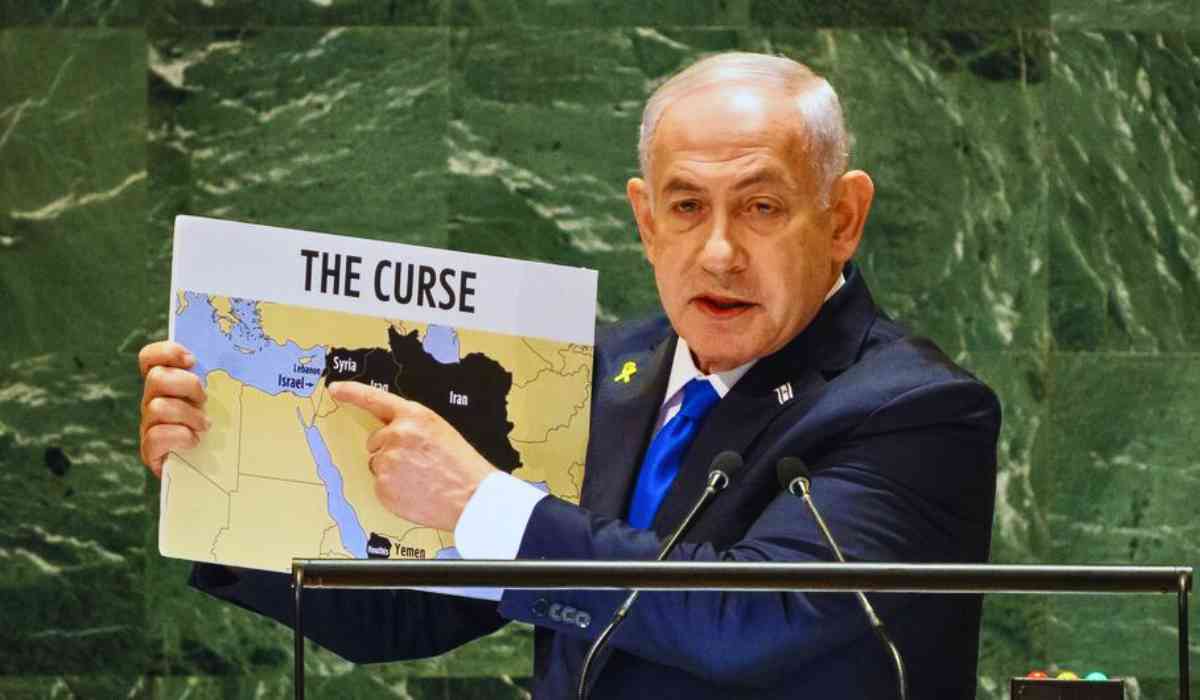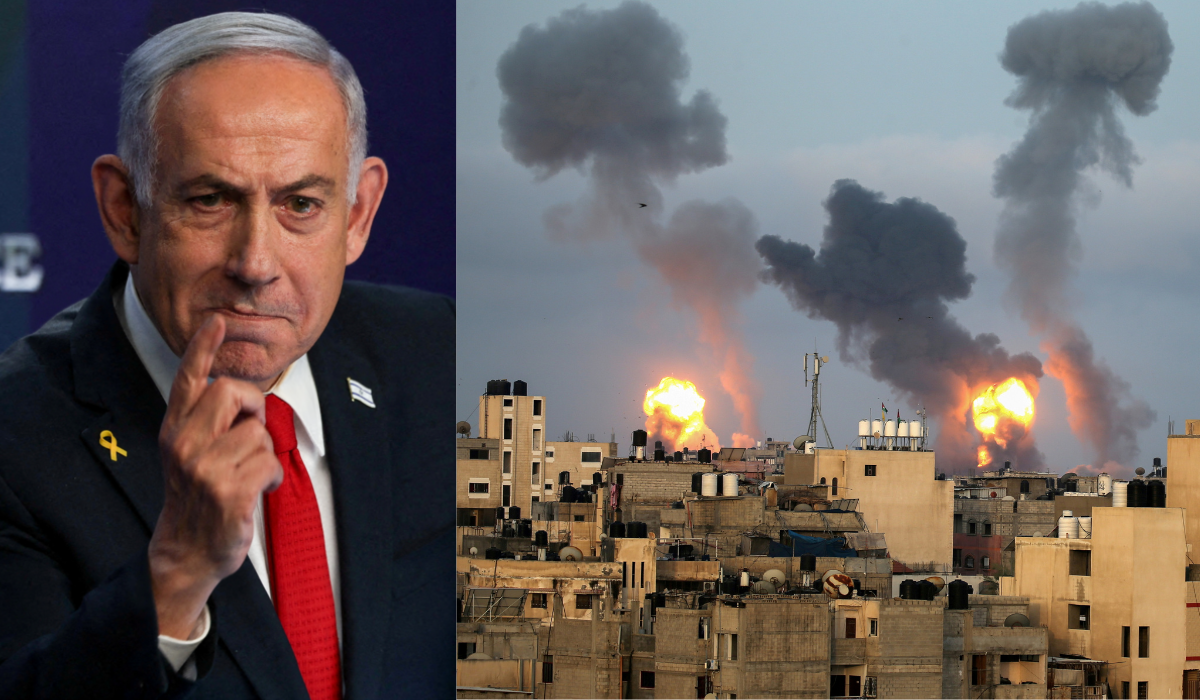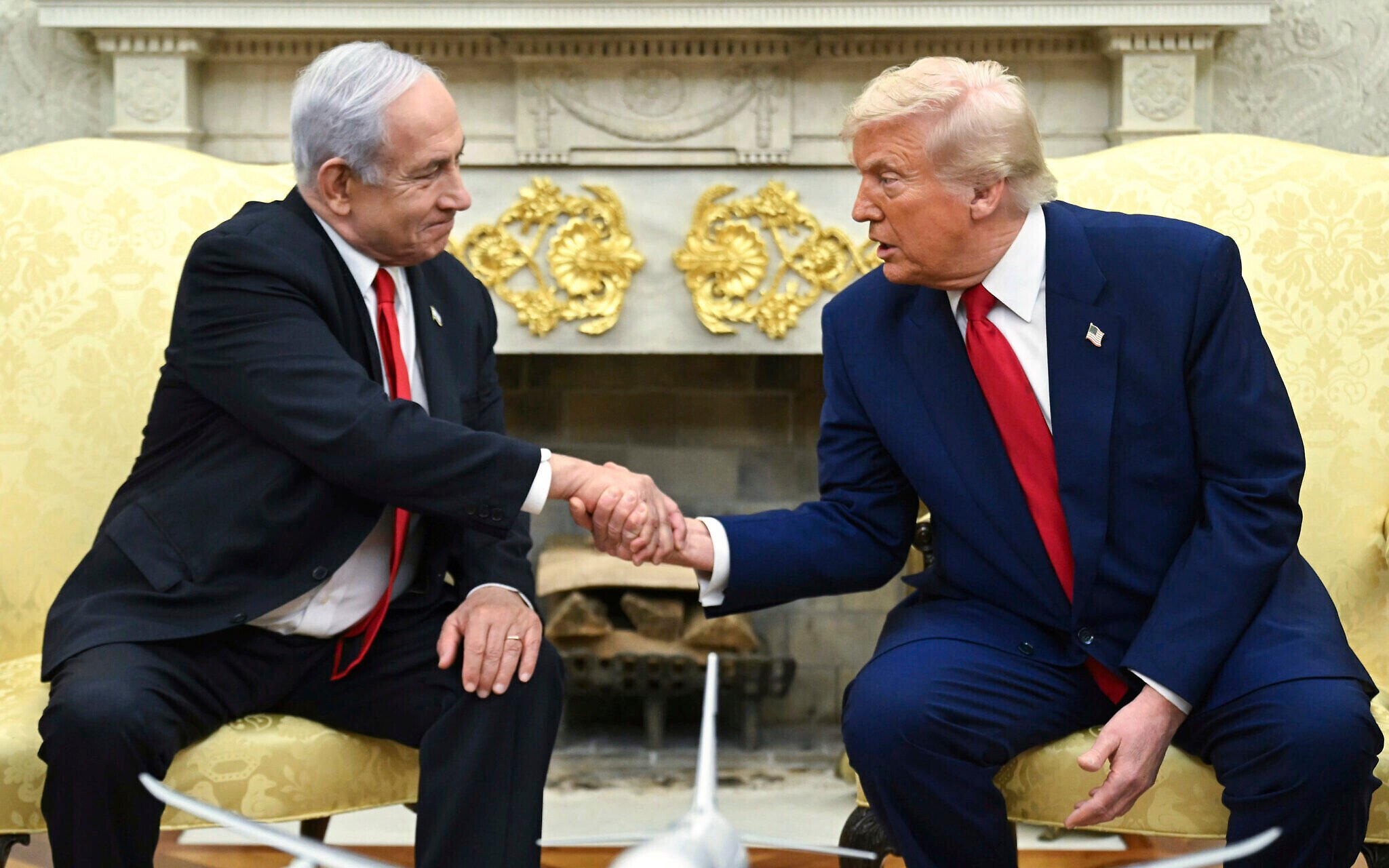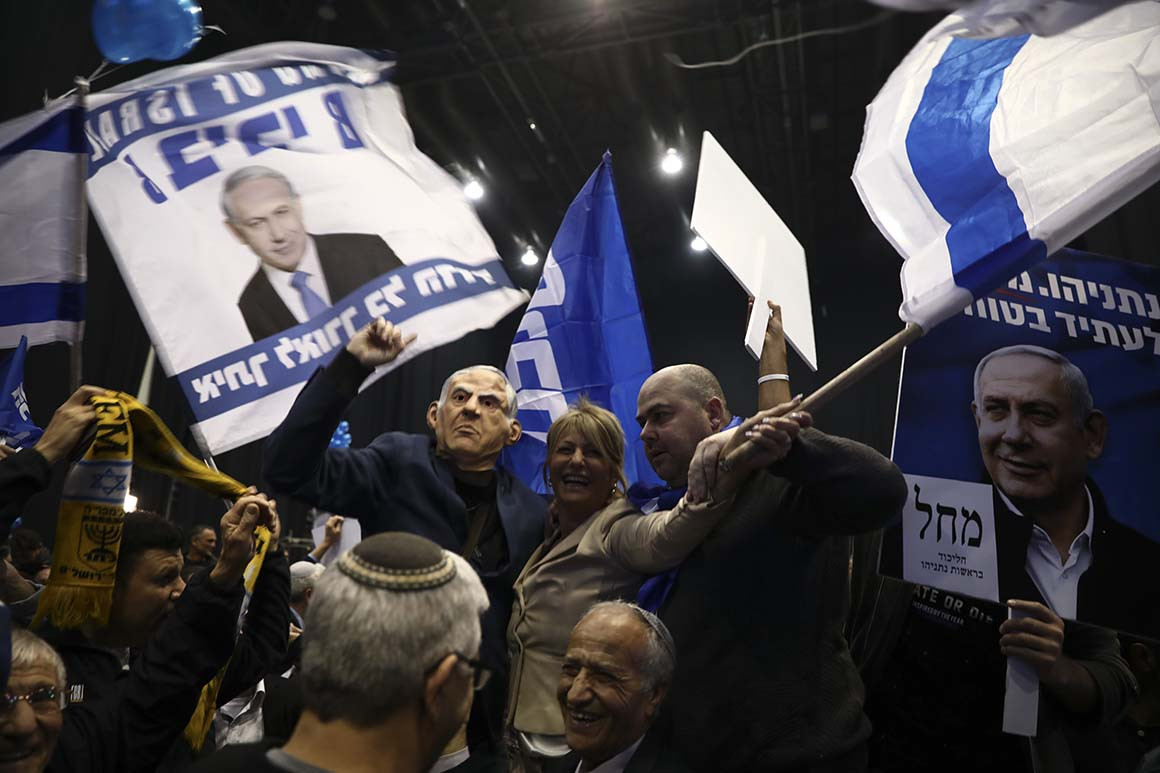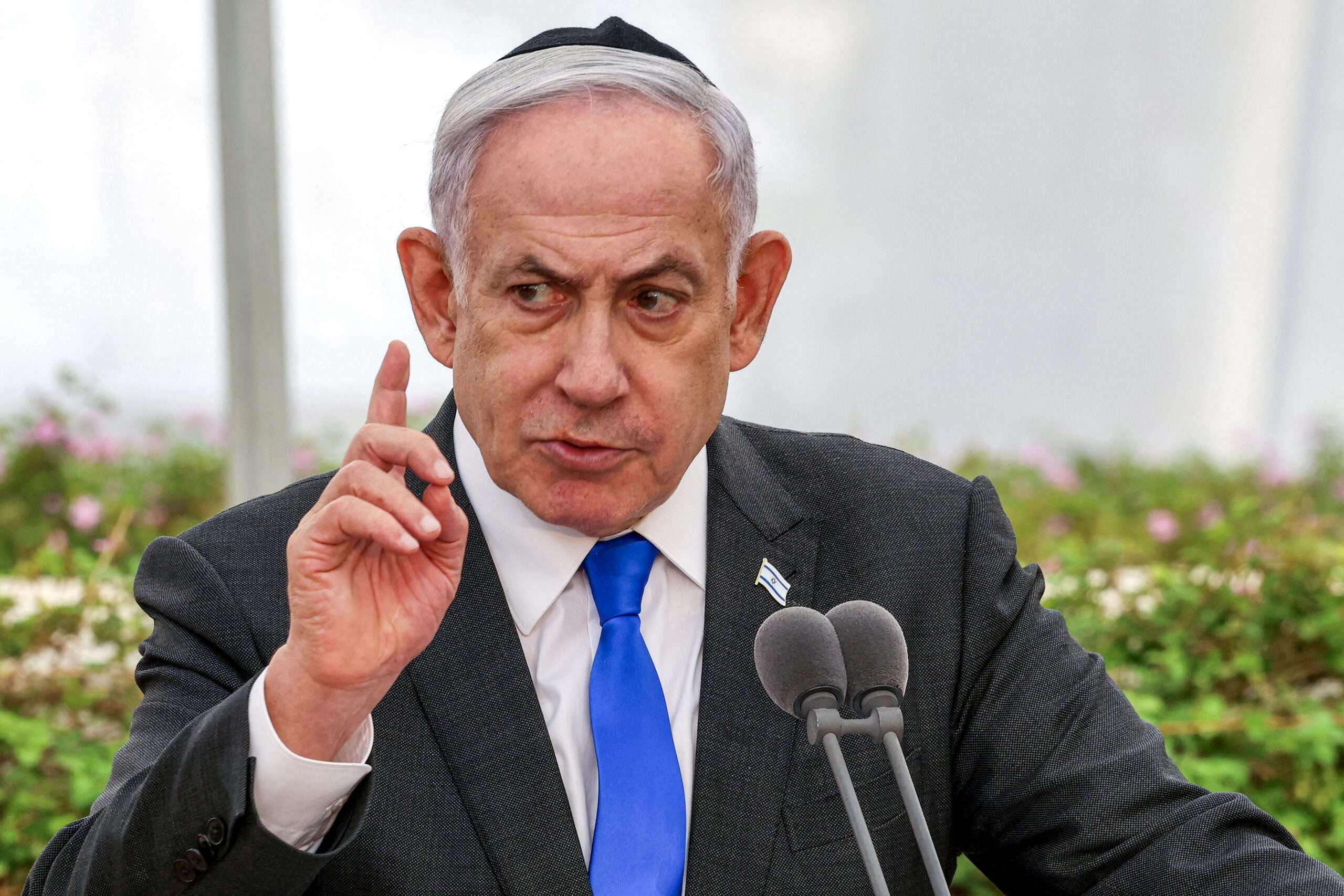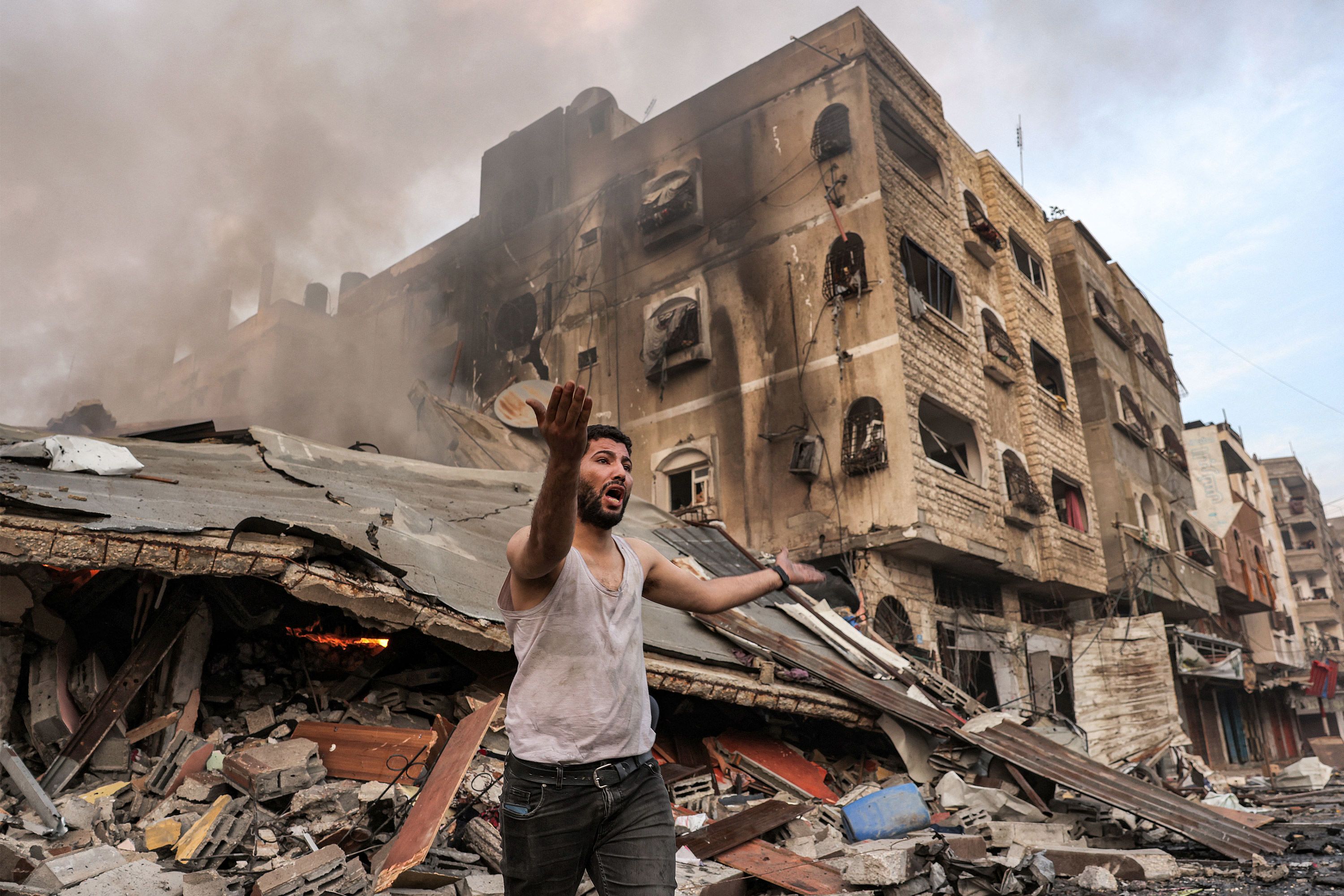Since the brutal Hamas attacks on October 7, 2023, Israel has unleashed a relentless military campaign in Gaza. The world has watched in horror as civilian infrastructure crumbles and the death toll surpasses tens of thousands, with women and children forming a large percentage of casualties. In the eye of this geopolitical hurricane stands Israeli Prime Minister Benjamin Netanyahu—a figure as polarizing as he is resilient. But as bombs fall and headlines churn, another story bubbles beneath the surface: Netanyahu’s long-running corruption trials.
Many now wonder—has Netanyahu turned Gaza into a smokescreen to delay or derail his own legal reckoning? Is war being wielded not only as a tool of statecraft but of personal survival? The answer isn’t simple, but the question is too important to ignore. In this editorial, we unpack the deeply uncomfortable, politically complex, and morally troubling intersection of war, power, and personal gain.
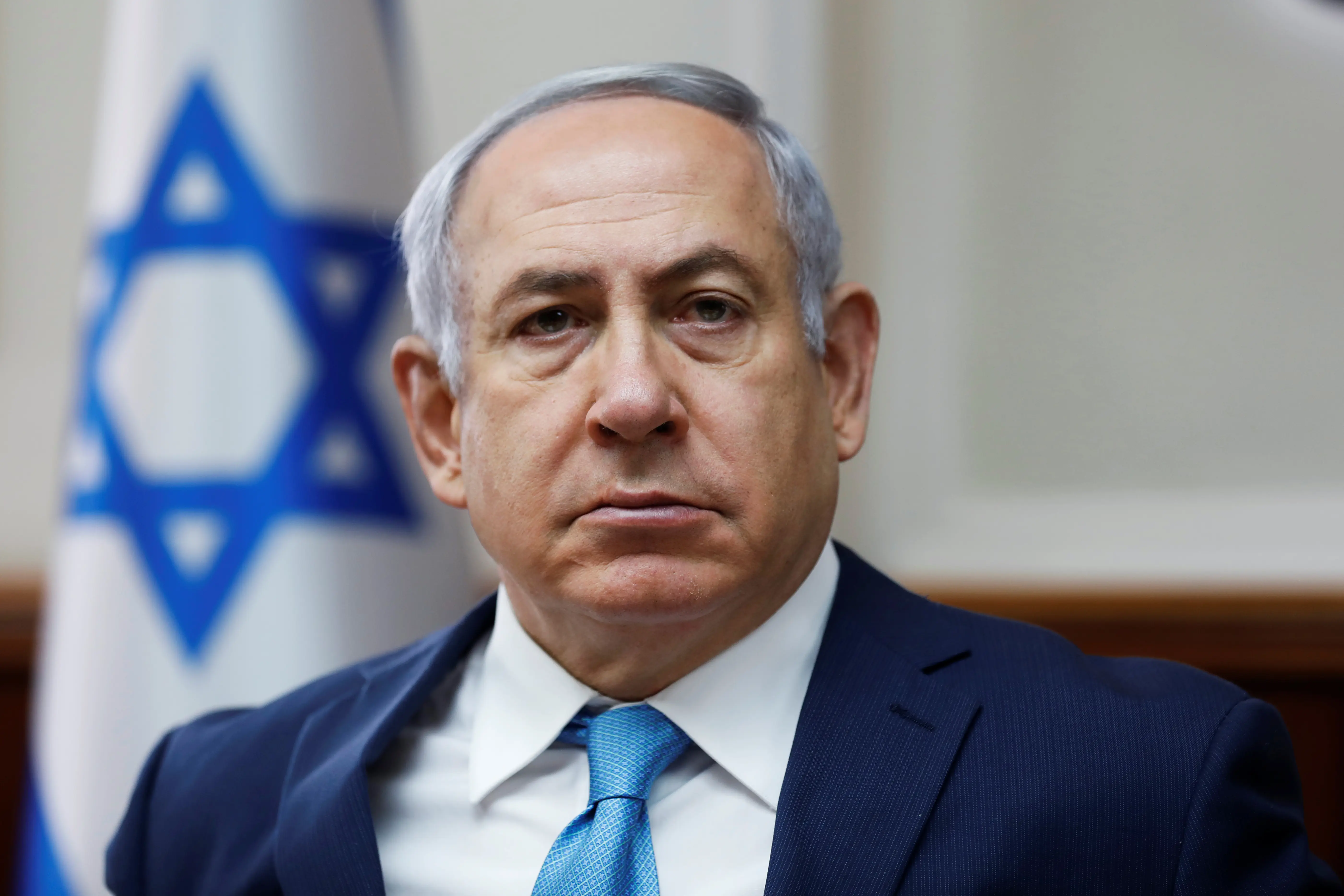
A Prime Minister Under Fire—From the Courts
Benjamin Netanyahu is Israel’s longest-serving prime minister. Often referred to as “King Bibi” by critics and loyalists alike, he has weathered political storms that would have ended most careers. Yet his current legal woes might be his greatest threat.
Netanyahu is facing three criminal cases—known as Cases 1000, 2000, and 4000—involving charges of bribery, fraud, and breach of trust. The accusations center around:
-
Accepting lavish gifts from billionaires in exchange for political favors,
-
Allegedly conspiring with media moguls to receive more favorable coverage,
-
And meddling with telecommunications policies to benefit associates.
These are not minor infractions; these are charges that could land Netanyahu in jail. The trials, delayed repeatedly since his indictment in 2019, are slowly grinding forward in Israeli courts. But they remain susceptible to further postponements, especially amid national emergencies—like a war.
Coincidence? Some say yes. Others, especially his critics, see a well-orchestrated strategy to use chaos as cover.
The Timing: War as a Shield
Netanyahu was politically weakened before the war began. His controversial judicial overhaul sparked mass protests throughout Israel in 2023, with large sections of Israeli society—civilian and military alike—turning against him. Public trust was plummeting.
Then came October 7. The Hamas attacks were brutal and unexpected, but Israel’s intelligence community—one of the most capable in the world—was caught off guard. Netanyahu’s government bore the blame for this catastrophic lapse.
Instead of resigning or accepting responsibility, Netanyahu pivoted to war. Within days, the narrative shifted from government accountability to national unity against a “common enemy.” Critics argue this is no accident. War gave Netanyahu:
-
A distraction from political scandals,
-
A justification for centralizing power,
-
An opportunity to delay his court appearances,
-
And a new political lifeline with the far-right base.
In wartime, dissent is often branded as unpatriotic. Opposition weakens. Emergency laws kick in. And suddenly, court dates seem trivial compared to national survival.
Trump and the American Equation
The United States is not a silent spectator. In fact, it plays a central role in Israel’s wartime conduct and its domestic politics. Former President Donald Trump and current Republican circles in the U.S. have often supported Netanyahu as a key ally in the Middle East. Their interests align around shared goals: combating Iran, suppressing Palestinian sovereignty, and reshaping international norms around state violence.
Let’s not forget that Trump’s administration:
-
Moved the U.S. Embassy to Jerusalem,
-
Recognized Israeli sovereignty over the Golan Heights,
-
Withdrew from the Iran nuclear deal,
-
And brokered the Abraham Accords—normalizing ties between Israel and several Arab states.
All of these moves emboldened Netanyahu and the Israeli right. Trump openly called Netanyahu “smart” and “tough”—qualities that many see as euphemisms for ruthless political cunning.
Now, with Trump eyeing a 2024 comeback (and facing his own legal troubles), Netanyahu’s war serves as an ideological rallying point. A hardline stance against “terror” resonates with conservative voters in both countries. The war thus becomes a shared political tool: it helps Trump appear strong on national security and allows Netanyahu to keep the judicial wolves at bay.
At What Cost? The Value of Human Lives
While the politics churn in back rooms and courtrooms, the cost on the ground is measured in blood.
As of mid-2025, over 38,000 Palestinians are reported dead. Most of Gaza’s civilian infrastructure lies in ruins—hospitals, schools, refugee camps, even designated humanitarian safe zones have not been spared. The humanitarian crisis is among the worst in modern memory, with the United Nations repeatedly warning of impending famine, waterborne diseases, and mass displacement.
In Israel, over 1,200 civilians were killed on October 7 and hundreds of hostages remain missing or dead. The trauma is real, and the anger justified. But does that warrant a war with such indiscriminate ferocity?
Israel has the right to defend itself—this is not in dispute. But the manner in which this right is exercised has led to global outrage, even among traditional allies.
The question must be asked: Is the pursuit of one man's political salvation worth the lives of thousands of innocents? Is there a moral line that has been crossed—and, if so, who will hold the violators accountable?
How Netanyahu Is Perceived at Home
Public perception of Netanyahu in Israel is deeply divided.
-
Among ultra-Orthodox and right-wing Israelis, he is seen as a strong leader defending the Jewish state against existential threats. The war has, in some circles, solidified his image as a “wartime prime minister”—indispensable in times of crisis.
-
But among secular liberals, center-left Israelis, and especially the families of the October 7 victims, Netanyahu is now viewed as a liability. Many blame him directly for security failures that allowed Hamas to infiltrate Israel. His refusal to take responsibility has only added to the anger.
-
Reservist soldiers, tech workers, and even Mossad veterans have joined anti-Netanyahu protests in Tel Aviv and Jerusalem, demanding his resignation.
The longer the war drags on, the more it polarizes Israeli society. And this may be by design. A fractured population is easier to govern than a united opposition.
The Future of Israel: Fragile and Uncertain
Israel is facing an unprecedented moment in its history. It is militarily dominant but morally isolated. It has the backing of the West, but it is losing the PR war globally—especially among the younger generation, international legal bodies, and within the Jewish diaspora itself.
If Netanyahu remains in power:
-
The judicial overhaul may resume,
-
Corruption trials may be indefinitely delayed,
-
Domestic polarization will deepen,
-
Israel’s already-tense relationship with Palestinians will become unsustainable.
But if Netanyahu falls:
-
Israel could return to a more centrist leadership,
-
There may be renewed efforts toward a two-state solution,
-
The damage to Israel’s global image may begin to repair.
Either way, Israel stands at a crossroads. One path leads toward democracy and reconciliation. The other toward authoritarianism and endless conflict.
The War We Don’t Want to Name
To even suggest that a national leader would stoke or prolong war for personal gain sounds conspiratorial. But history is replete with such examples. Leaders have often chosen war over accountability, chaos over justice, and fear over reform.
Benjamin Netanyahu, with his sharp political instincts and decades of experience, knows how to exploit crises. The war in Gaza may have begun as a response to a real and terrible attack. But its continuation—without clear military goals, exit strategy, or humanitarian limits—raises serious questions about intent.
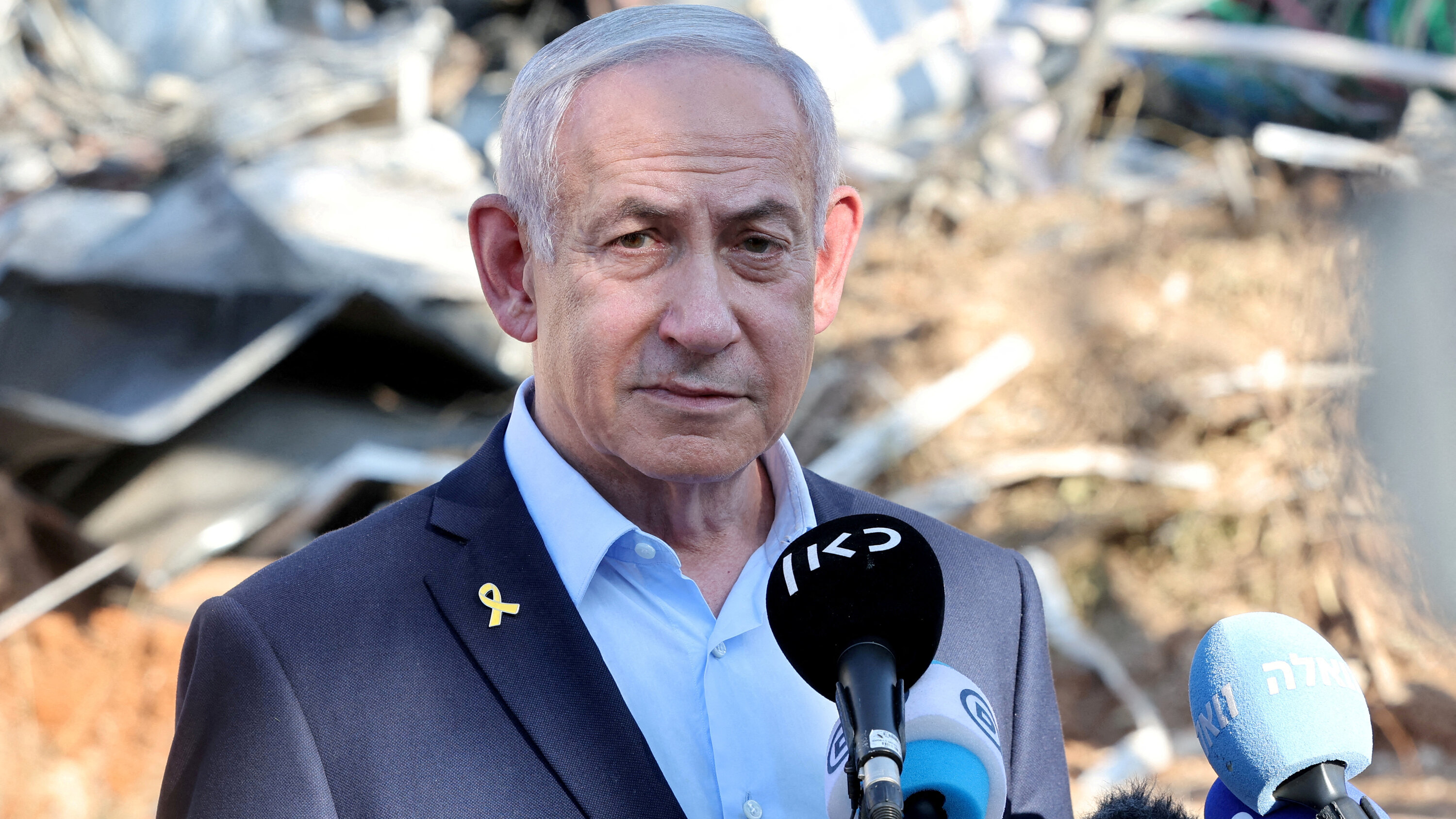
The world must not look away. Journalists, human rights observers, and even ordinary citizens must continue to ask uncomfortable questions:
-
Why is this war still ongoing?
-
Who benefits from its continuation?
-
What is being hidden behind the noise?
The people of Israel and Palestine deserve peace, dignity, and truth. Not war games for the benefit of a few in power.
And as for Netanyahu—his day in court may be delayed. But history has a longer memory. And it judges more harshly than any courtroom ever could.
With inputs from agencies
Image Source: Multiple agencies
© Copyright 2025. All Rights Reserved Powered by Vygr Media.

